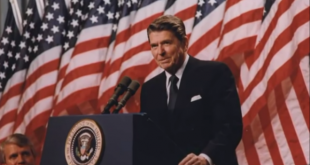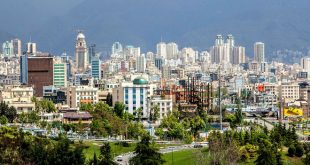Donald Trump’s highly publicized meeting with a group of black pastors was met immediately with reactions ranging from skepticism to condemnation. Critics were immediately justified when numerous individuals on Trump’s “endorsement” list spoke out to clarify that they had only agreed to meet with the real estate mogul turned presidential candidate, rather than agreeing to endorse him. Those who did lend their names to the Trump candidacy were predictably branded sellouts.
But what was missed in all the name-calling and outrage was the overall necessity of Trump’s move, even if it was poorly executed. Trump recognizes what Romney did not, which is that—despite the booming Latino population and a myriad of seemingly more pressing issues—no Republican can win without at least 10 percent of the black vote. And the only way to win any of those votes is to ask.
There is no need to discuss extensively what any sensible African American knows is true: if we continue to give our unconditional allegiance to one party, we will be ignored by both. We need leaders in both parties who will listen to our concerns, and we need to be very clear about our priorities. For far too long, the press has reduced the problems of the black community to the meaningless soundbites of material poverty and white racism. Such oversimplifications offers no clear policy objectives other than throwing money at programs that don’t work, while fomenting white guilt and resentment.
I think there are four major needs in the African American community that nearly everyone can agree on that have clear policy implications. Any Republican candidate who hopes to win the general election must address these in a meaningful way. First, blacks need safe neighborhoods. This year alone, homicide rates have soared in many American cities, including Milwaukee, St. Louis, Chicago, Baltimore, and Washington, DC, and the victims have been disproportionately African American. By August, the number of murders in Baltimore had reached a 43 year high. The spike occurred after the spring riots surrounding the death of Freddie Gray in police custody. According to the Associated Press:
“Crime experts and residents of Baltimore’s most dangerous neighborhoods cite a confluence of factors: mistrust of the police; generalized anger and hopelessness over a lack of opportunities for young black men; and competition among dealers of illegal drugs, bolstered by the looting of prescription pills from pharmacies during the riot.”
Solving this problem means building trust with law enforcement—including punishing those officers who abuse their power—as well as actively policing low income neighborhoods, so that law abiding people can live in peace. Of course we must not put our law enforcement officers in no-win situations. But the citizens being policed must have confidence that the people being apprehended will be treated fairly, and that officers found to have abusive tendencies will not be tolerated on the force.
Second, blacks need prison reform. We must prioritize jailing assailants, such as murderers and rapists, instead of filling our prisons with non-violent offenders. Lengthy sentences for low level drug dealers and other petty offenses are locking fathers away from their children and robbing countless young men of a chance at life. For such reform to be successful, we need a solid commitment to do more than just parole or release convicts, or offer lighter terms to first time offenders. We must work to drastically reduce the recidivism rate, ensuring that offenders are given opportunities to gain skills and obtain work.
Third, nearly all blacks agree on the need for education reform, yet it is shockingly slow in coming for the children who need it the most. As many people have already observed, wealthy parents already have school choice. The notion that black parents are better off with absolutely no option for their children except the school that they are assigned to according to the home they can afford is absurd. Of course parents share responsibility for the state of our schools and the preparedness of our students, but we must offer better options to all students now. School choice is the simplest and quickest way to do that.
Lastly, African Americans and all other Americans need policies that will strengthen—not undermine—marriage and family. As I, along with others, have written countless times before, the best protection against poverty, crime, substance abuse and a myriad of other social ills is to be born to married parents who stay together. We will never see the other problems plaguing our nation addressed effectively unless we work also to encourage young people to finish school, get a job, get married and then have children. I would challenge all black Americans not to offer their votes to any candidate who cannot offer a comprehensive plan to address all four of these issues.
Trump did not play the race card. He may have actually put the black vote back into play!
Bishop Harry Jackson is chairman of the High Impact Leadership Coalition and senior pastor of Hope Christian Church in Beltsville, MD.
 Black Community News News and Commentary for Christians
Black Community News News and Commentary for Christians




I love seeing the black community starting to break away from a political party that has tried to oppress them for years while acting as though they are doing them a favor. We should all learn to vote for the person, not the party.
Blakpac.com is the only organization that has delivered its position paper to all candidates. Join us
Excellent article. although on several of the subjects Bishop Jackson mentions, it’s up to the Black community to get control of the unwed mom situation, black on black crime, drugs, etc., not to look for candidates to take over and make everything well again. I hope Dr. Carol Swain gets involved in Republicans reaching out to Black Americans, too.
They r either Africans or Americans not both